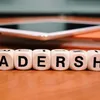CII global summit showcases leadership strategies for the knowledge edge
In our fifth preview article on CII’s upcoming Global Knowledge Virtual Summit 2020, we share insights on how knowledge organisations can lead by example, overcome myths, and excel with collective insights.
Strategies for organisational leadership blending AI with knowledge management will be discussed next week at the CII Global Knowledge Virtual Summit 2020: Knowledge in the Age of Artificial Intelligence. The event will be held entirely online, on three afternoons across July 6-8.

See Part I and Part II of YourStory’s 2019 summit articles for insights on digital transformation, knowledge communities, and business impacts. YourStory is the media partner this year as well, and shares perspectives from the conference speakers and members of the Knowledge Management Global Network (KMGN).
As the knowledge movement continues to gather steam in countries around the world, it has received particular urgency in the wake of the COVID-19 pandemic to speed up effective knowledge-sharing across organisational sectoral and national boundaries.
Leading by example: business impacts of knowledge management
“KM impact on business can be measured in multiple ways, such as levels of customer satisfaction, margin improvement, and revenue growth,” explains Hariprasad Reddy, General Manager for Quality, Knowledge Management and Analytics at Wipro, in a chat with YourStory (see also our earlier article, KM in the Age of AI).
The impact can be also measured via the availability or retention of knowledge within the organisation. At the operational level, Hariprasad listed a number of impacts of Wipro’s flagship KM tools and frameworks: productivity improvement, SLA adherence, defect reduction, right first time delivery, first call resolution (FCR) improvement, lowering of average handle time (AHT), and reduction in number of hops of a customer incident.
“Repeatedly, the KM function at Wipro has been able to provide business-impacting outcomes and hence is one of the centrifugal functions at Wipro. We generate over a 100 ‘KMPacts’ including customer testimonials every year,” Hariprasad emphasises.
Winners of the Most Innovative Knowledge Enterprises (MIKE) will be sharing their success stories at this year’s CII summit. “The winning companies are a mix of brick and mortar as well as pure knowledge-driven organisations. All of them have leveraged KM as part of their strategy to create business impact,” adds Rudolph D'souza, Chief Knowledge Officer of Afcons Infrastructure and Chair of KMGN.
Afcons Infrastructure has embedded knowledge processes into the flow of work. “The outcomes are superior execution in terms of project delivery on or before time, within budget and with highest customer satisfaction,” Rudolph explains.
The construction and infrastructure industry is plagued by cost overruns and delays. There are publicly available reports that up to 70 percent of projects globally have time and cost overruns, Rudolph observes.
“Afcons is changing the paradigm. We are also known for extreme engineering. Knowledge services and operational excellence are the foundations for this transformation,” he proudly says.
As an example of knowledge impact, he points to the execution of the twin metro tunnels below the Hooghly River in Kolkata. “Assiduously studying and absorbing learnings from previous underground projects, we achieved flawless execution 100 days ahead of schedule,” Rudolph says.
Other impacts are shared by Arthur Shelley, Founder of Intelligent Answers, and former Global Knowledge Director for Cadbury Schweppes. Knowledge initiatives at Cadbury in the 2000s had both tangible outputs (increased profit and savings) as well as intangible outcomes (reputation, trusted communities of practice, enhanced communications).
“Several of these stories have been publicly shared over the years. One collaboration project alone enabled an immediate sales uplift of over $10 million dollars per year, and avoided the need to build a new facility,” Arthur explains. This happened through engineers sharing how to resolve manufacturing challenges of a popular new product, thereby increasing global production at a time of high demand.
“Another example was a product development community sharing successes in one part of the world enabling launch project times to be halved in other countries for new products,” he adds. In procurement, he cites the example of sharing of contracts which enabled global purchasing of some components. “This saved millions of dollars and built better partnership with some suppliers,” Arthur says.

Overcoming myths and misconceptions
Though frameworks for learning organisations and knowledge management have been around for decades, a number of myths and misconceptions still get in the way. Many of these revolve around technology, process, scope, pricing, and time of impact.
“Knowledge management is not library services,” explains Gopichand Katragadda, Chairman, Global Knowledge Summit 2020, and Founder and CEO at Myelin Foundry. GE’s Whitney Knowledge Center was globally led by his team at the GE John F. Welch Technology Center during his tenure as the MD in 2011-2014.
They used techniques like knowledge mapping to come up with “heat maps” of ongoing industry research in core areas like energy and healthcare, he explains. They identified trends in clean technology and genetics, respectively.
In Gopichand’s later years at the Tata Group, research was conducted on patent filings by location in areas like deep learning, gene editing and grapheme. “These examples show that an organisation can leverage its KM resources to inform its strategy,” he emphasises.
“Many leaders continue to see KM as just a technology platform to manage document repositories. They claim they are already doing this well, so what’s the need for KM,” observes Ved Prakash, Chief Knowledge Officer of Trianz. Another common misconception is that one doesn’t have to manage knowledge, and that it flows automatically without the need for any intervention.
“One of the biggest myths is that KM is old fashioned and passé,” cautions Rudolph D'souza of Afcons Infrastructure. KM was its peak in the dawn of the Internet era. “People mistook the medium as the messiah. It was not the internet age we were entering – it was the Knowledge Age, where knowledge is the key asset,” he recalls.
“Today the same misconception is taking place as we enter the Digital Age. But Digital is the medium not the economy,” Rudolph clarifies. “Make no mistake – we are in the midst of the Knowledge Economy.”
“Today, it is the organisation’s knowledge capital that, if developed and deployed strategically, will lead to competitive advantage, sustainable and profitable growth, and talent attraction,” Rudolph emphasises. He points to a number of examples in this regard in traditional sectors and the startup space.
Leading firms like Apple relentlessly create value by leveraging their knowledge of design, precision engineering, retail and customer sentiment. In the startup world, investments have been made in some startups that may still not be profitable but have market potential and a chance of capitalising their knowledge in future, Rudolph explains.

Balaji Iyer, Director of Knowledge Management and Enterprise Transformation at Grant Thornton, identifies three other myths as well. Some people think KM is only needed in large and knowledge-intensive organisations, or that it needs huge technology investments.
“A third myth is that the silver bullet involves just investing in technology and hiring a KM team to get business success,” he cautions. “We are in the knowledge economy, moving quickly into an experience economy. KM is actually table stakes and not a discretionary program,” Balaji emphasises.
“The right technology and investment in KM experts enable healthy knowledge sharing. But they fail without the right organisational culture and incentives,” he explains.
“One of the biggest misconceptions is that KM belongs to a KM department,” observes Rajesh Dhillon, President, Knowledge Management Society (KMS), Singapore. Without an explicit focus on KM across the board and embedded in processes, knowledge largely remains in personal silos.
Though some KM roles are being redefined or replaced, the importance of knowledge facilitation and compilation of learnings remains, he emphasises. KM professionals are still needed to smoothen capture, retention and reuse of knowledge. Rajesh cites an IJIKM article (PDF download) which lists four pillars of KM: leadership, organisation, technology, and learning.
Refiloe Mabaso, Deputy Chairperson of Knowledge Management South Africa (KMSA), observes that some organisations think KM is only for professional services. It is actually applicable to the entire range of industry sectors.
Many organisations fail to understand the richness of solutions that the discipline of KM can provide them, observes Moria Levy, CEO, ROM Knowledgeware. “High-tech organisations tend to think that they know how to do it all by themselves, without learning from others,” she adds.
Other organisations are fooled to believe that new AI search capabilities will make KM irrelevant, Moria cautions. Some KM practitioners also feel organisations need to wait for a long time to see KM benefits, when actually quick wins are also possible.
ALSO READ

Some organisations feel KM is largely about capturing knowledge, cautions Vincent Ribière, Managing Director and Co-founder of the Institute for Knowledge and Innovation Southeast Asia (IKI-SEA). Some professionals feel knowledge is power, and should not be shared. Another common misunderstanding is What's in it for me?
“The biggest myth about KM is that it requires a lot of investment in a complicated set of tools,” observes Manoj Hariharan, Chief Knowledge Officer at Bosch Engineering and Business Solutions. But KM is about more than tools, it is about the people and process, and a culture of work that makes knowledge easily accessible and embedded in daily routines, he explains.
KM is also a specialist skill that requires training, observes Randhir Pushpa, Founder and Chief Consultant, ACIES Innovations. Proper training can ensure that KM is relevant and has direct impact on organisational performance.
“The biggest myth is that KM is ‘extra work’ – or worse, to be completed after the ‘normal work’ is done,” cautions Arthur Shelley of Intelligent Answers. “The fact is that knowledge is being (co)created all the time in all human interactions, leading to value that needs to be harnessed,” he adds.
Knowledge transfer, co-creation, collaboration, and flow lead to productivity, accuracy, quality, inclusion, trust and better decisions, according to Arthur. “Knowledge leadership comes from embedding a mindset that is inclusive and constantly learning through social interactions,” he emphasies. Not having this approach leads to comments like We don’t have time, Knowledge and information are the same thing, and It is all about content capture.
Some expectations of KM are overblown also, cautions Ravi Shankar Ivaturi, Business Operations Senior Director, Products and Platforms, Unisys. Some wrongly expect that KM should solve all the knowledge issues of a company; others think of the KM function as an overload.
Hariprasad Reddy of Wipro also points out that some people believe their teams need to innovate instead of using past solutions and proven practices. Others also fear that if experts share their knowledge they will lose their USP, and hence will not be willing to share.
Leadership in the Age of Knowledge and AI
The speakers offer a range of tips for leaders to embrace knowledge and AI. The advice spans mindset, frameworks, vision, industry trends, and impact.
“Embrace digital, lead on leveraging AI, and think beyond to knowledge creation. Open access and working out loud (employees broadcasting their work for collaboration) are growing trends which we need incorporate,” advises Gopichand Katragadda of Myelin Foundry. (See also our earlier article, An Eye for AI.)
“The world is creating knowledge at such an accelerated pace that no single process can capture it. But a culture of continuous learning can create successful, knowledge-led organisations,” he observes.
“Start looking at knowledge as a strategic asset for long-term sustenance, growth and profitability. You will not be disappointed,” says Ved Prakash of Trianz. Newer roles will continue to emerge in the field of KM, in keeping with trends.
Rudolph D'souza of Afcons Infrastructure advises leaders to analyse the knowledge factors in business goals of customer experience, competitive positioning and employee productivity. “Check if your knowledge assets are being put to use or fallen by the wayside,” he adds.
“Once you are convinced of the business case for KM programmes, invest in them,” advises Balaji Iyer of Grant Thornton. “Give KM a solid seat at the table. Instead of just asking for RoI, hold it accountable for business outcomes. If you are not managing your organisational knowledge well, you are mis-managing it,” he urges.
“I believe it is wisest to invest in people as they have the greatest influence on the outcome of any initiative, especially KM,” explains Mohamad Faiz Selamat, Vice President, Knowledge Management Society (Singapore). Once the team understands the value KM brings to their work, they can and will do wonders for the business and organisation, he adds.
“Machines can work tirelessly for you, but engaged team members will go the extra mile, beyond requirements. This has been proven during the COVID-19 pandemic, where people showed they can thrive when systems and technology fails,” he emphasises. (See also our earlier article, Why knowledge sharing is even more important in the COVID-19 era.)
“KM practitioners need to step up and embrace the change and challenges that we are faced with,” urges Refiloe Mabaso of Knowledge Management South Africa (KMSA). This includes innovation for business continuity and sustainability.
“Make sure KM supports the strategic objectives of the organisation, and that KM initiatives are focused on critical knowledge domains,” advises Vincent Ribière of IKI-SEA. The need of the day is not to glamourise KM, but to imbibe it in daily work,” adds Manoj Hariharan of Bosch.
As the virtual workplace becomes increasingly crowded, it is important for KM leaders to cultivate and promote empathy, advises Ravi Shankar Ivaturi of Unisys. “It is a completely new world out there. There is an opportunity for every function to make an increased impact to business results navigating through this VUCA world,” he urges.
“There is no better time more conducive than now to bring the full-blown KM charter to the head table and grow it,” urges Hariprasad Reddy of Wipro. Harnessing collective knowledge along with a portfolio of technologies is a key priority.
“Be proactive and put a microscope on all the areas where meaningful data is being generated in your organisation,” advises Srinivas Mahankali, Principal Consultant for Blockchain, National Institute for Smart Government. “Strategise how best you can unlock value across all dimensions of the data lifecycle via analytics led by AI and ML,” he adds.
Other trends to harness are storytelling and gamification (see our earlier article, Gamification for employee engagement and motivation.). The speaker lineup includes authors of two storytelling books, Gabrielle Dolan (Stories for Work) and Sejal Vohra (The Power of Data Storytelling).
KM: The road ahead
David Gurteen, an expert in conversational leadership and knowledge cafes, observes that many professionals have not fully understood the four levels of KM. They include information management, knowledge sharing, decision making, and community leadership.
“Knowledge is not power, but the ability to act on knowledge and influence people and events is power,” he clarifies, in a series of articles. He also distinguishes between influence, authority and leadership.
“The COVID-19 crisis is a good but sad example. We had the knowledge to react more effectively to it, and many people had the ability but no one was sufficiently MOTIVATED to do anything,” David laments.
“Knowledge without a sense of responsibility, motivation, genuine commitment, and seeing leadership as practice is nothing,” he sums up.
“The better application of knowledge principles and practices makes you a better leader and amplifies the value that can be co-created together,” advises Arthur Shelley of Intelligent Answers. Humanity is at a unique moment in history where it must make a very significant shift in the way we cohabitate our (limited) planet.
He asks: “Do you want to be remembered as the leader who made a huge contribution to the organisation and to wider society, or forgotten as the self-serving villain who extracted whatever they could for themselves and left the rest diminished?”
“Let’s take this disrupted opportunity to collectively step up and actively share insights to co-create a better and more connected and sustainable world. It may be a long time before we get another significant chance to recover what was worthwhile and change the rest to something better,” Arthur signs off.
(Edited by Teja Lele Desai)









